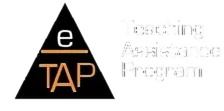Government Standards
Australian Curriculum
Science - Grade 7
Assessment Exam - Australian Curriculum - Level 7 Science| Science Understanding | eTAP Lesson |
|---|---|
| Biological sciences | |
| Classification helps organise the diverse group of organisms
ACSSU111 |
Organization and Function |
| Interactions between organisms, including the effects of human activities can be represented by food chains and food webs
ACSSU112 |
The Food Web and the Physical Environment |
| Chemical sciences | |
| Mixtures, including solutions, contain a combination of pure substances that can be separated using a range of techniques
ACSSU113 |
Elements and the Periodic Table |
| Earth and space sciences | |
| Predictable phenomena on Earth, including seasons and eclipses, are caused by the relative positions of the sun, Earth and the moon
ACSSU115 |
What Causes the Seasons |
| Some of Earth’s resources are renewable, including water that cycles through the environment, but others are non-renewable
ACSSU116 |
Water Cycle Natural Energy and Material Resources |
| Physical sciences | |
| Change to an object’s motion is caused by unbalanced forces, including Earth’s gravitational attraction, acting on the object
ACSSU117 |
Gravity and the Solar System |
| Science as a Human Endeavour | eTAP Lesson |
| Nature and development of science | |
| Scientific knowledge has changed peoples’ understanding of the world and is refined as new evidence becomes available
ACSHE119 |
|
| Science knowledge can develop through collaboration across the disciplines of science and the contributions of people from a range of cultures
ACSHE223 |
Collaborate to Evaluate Presentations |
| Use and influence of science | |
| Solutions to contemporary issues that are found using science and technology, may impact on other areas of society and may involve ethical considerations
ACSHE120 |
Resources in the Ecosystem |
| People use science understanding and skills in their occupations and these have influenced the development of practices in areas of human activity
ACSHE121 |
|
| Science Inquiry Skills | eTAP Lesson |
| Questioning and predicting | |
| Identify questions and problems that can be investigated scientifically and make predictions based on scientific knowledge
ACSIS124 |
The Scientific Method |
| Planning and conducting | |
| Collaboratively and individually plan and conduct a range of investigation types, including fieldwork and experiments, ensuring safety and ethical guidelines are followed
ACSIS125 |
Information Collection |
| Measure and control variables, select equipment appropriate to the task and collect data with accuracy
ACSIS126 |
Tools and Technology |
| Processing and analysing data and information | |
| Construct and use a range of representations, including graphs, keys and models to represent and analyse patterns or relationships in data using digital technologies as appropriate
ACSIS129 |
Graphing Data |
| Summarise data, from students’ own investigations and secondary sources, and use scientific understanding to identify relationships and draw conclusions based on evidence
ACSIS130 |
Drawing Conclusions |
| Evaluating | |
| Reflect on scientific investigations including evaluating the quality of the data collected, and identifying improvements
ACSIS131 |
Finding Answers to Questions |
| Use scientific knowledge and findings from investigations to evaluate claims based on evidence
ACSIS132 |
How to Draw and Present Conclusions |
| Communicating | |
| Communicate ideas, findings and evidence based solutions to problems using scientific language, and representations, using digital technologies as appropriate
ACSIS133 |
|


